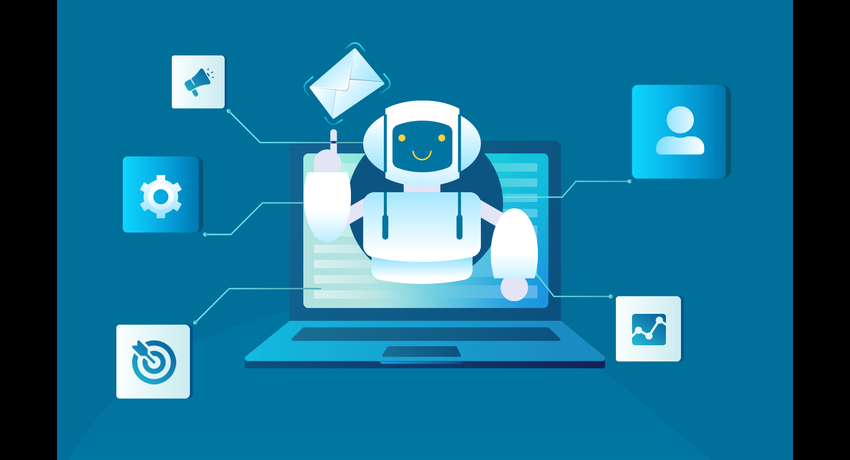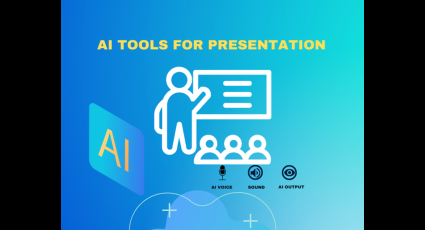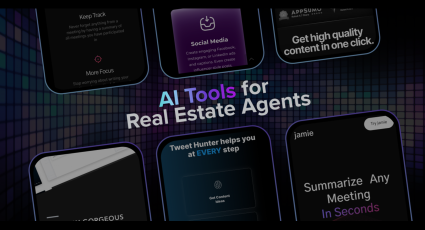Blog Details
How to Use AI for Emails: A Comprehensive Guide

AI in Email Communication
In today's digital age, staying connected with customers is more important than ever. Email remains a powerful tool for communication, marketing, and customer engagement. However, as the volume of emails increases, managing them efficiently can become a daunting task. Enter Artificial Intelligence (AI), a game-changer that is revolutionizing how we approach email communication. In this guide, we'll explore how to use AI tools for email marketing to optimize your email strategy, providing valuable insights for marketers and small business owners alike.
The Evolution of Email
Email has come a long way since its inception. Initially, it was a simple means of digital communication, but over the years, it has evolved into a sophisticated tool for marketing, customer service, and business operations. This evolution has been driven by advancements in technology, and AI is at the forefront of this transformation.
Why AI is Revolutionizing Email Management
AI offers the ability to analyze vast amounts of data, identify patterns, and make intelligent decisions. This capability is particularly valuable in email management, where AI can automate routine tasks, personalize content, and enhance overall efficiency.
The Benefits of Using AI in Your Email Strategy
Integrating AI into your email strategy can yield numerous benefits, including:
Increased Efficiency: Automating repetitive tasks frees up time for more strategic activities.
Enhanced Personalization: AI can tailor content to individual preferences, improving engagement.
Improved Accuracy: AI reduces the risk of human error in email campaigns.
Data-Driven Insights: AI provides valuable analytics to optimize email performance.
Understanding AI Tools for Email
To fully leverage AI in your email strategy, it's essential to understand the tools available. These tools range from simple AI-powered plugins to comprehensive email platforms.
Overview of Popular AI Email Platforms
GetResponse
GetResponse is a powerful all-in-one marketing platform that leverages AI to optimize your email campaigns. With features like automated email sequences and advanced analytics, it helps you deliver personalized content to your audience, enhancing engagement and conversions.
MailButler
MailButler integrates seamlessly with your existing email client, using AI to provide real-time suggestions for improving your emails. Its intelligent features include scheduling, follow-up reminders, and tracking, making it an essential tool for maintaining effective communication with your contacts.
Snov.io
Snov.io offers AI-driven solutions for email outreach and lead generation. Its email verifier ensures your messages land in valid inboxes, while its AI-powered drip campaigns help automate follow-ups and nurture leads efficiently.
LeadIQ
LeadIQ focuses on simplifying the lead generation process through AI. It automatically captures and verifies contact information from various online sources, providing accurate data for your email campaigns. Its intelligent recommendations help you craft personalized messages, increasing your chances of engagement.
Postaga
Postaga is an AI-powered outreach tool designed to supercharge your email marketing efforts. It assists in creating personalized email sequences and provides actionable insights to optimize your campaigns. Whether you’re looking to build backlinks or promote your brand, Postaga helps you achieve your goals with ease.
Key Features of AI Email Assistants
AI email assistants come equipped with a variety of features designed to enhance your email strategy, such as:
Automated Responses: AI can generate quick replies based on the context of an email.
Scheduled Sending: AI determines the optimal time to send emails for maximum engagement.
Content Analysis: AI evaluates email content for readability, tone, and effectiveness.
Integrating AI Tools with Existing Email Clients
One of the advantages of AI email tools is their compatibility with existing email clients. Integrating these tools with platforms like Gmail, Outlook, or Apple Mail can streamline your workflow without requiring a complete overhaul of your current system.
AI-Enhanced Email Content
Creating compelling email content is crucial for engagement, and AI can significantly enhance this process.
Using AI for Subject Line Optimization
Subject lines are the first thing recipients see, making them critical for open rates. AI tools can analyze past email performance to suggest subject lines that are more likely to resonate with your audience.
Leveraging AI for Personalized Email Content
Personalization is key to effective email marketing. AI can segment your audience based on behavior, preferences, and demographics, allowing you to tailor content to individual recipients.
Enhancing Email Tone and Style with AI Suggestions
AI tools like Grammarly and Hemingway can provide real-time suggestions to improve the tone and style of your emails. Whether you need to sound more professional or more approachable, AI can help you strike the right balance.
AI for Email Segmentation and Targeting
Segmentation allows you to target specific groups within your audience, increasing the relevance and effectiveness of your emails.
How AI Analyzes Customer Data for Segmentation
AI can analyze customer data from various sources, such as purchase history, website interactions, and social media activity, to create detailed segments. This data-driven approach ensures that your emails are always relevant to the recipient.
Improving Targeting Accuracy with Machine Learning
Machine learning algorithms can continuously refine segmentation criteria based on new data, improving targeting accuracy over time. This adaptability makes AI an invaluable tool for dynamic email marketing strategies.
Case Studies: Successful AI-Driven Email Campaigns
To illustrate the effectiveness of AI in email marketing, let's look at a few case studies:
Case Study 1: Improved Open Rates with AI Subject Lines
A retail company used AI to optimize its email subject lines, resulting in a 20% increase in open rates. By analyzing past performance data, the AI tool suggested subject lines that were more engaging and relevant to the audience.
Case Study 2: Enhanced Personalization for Better Engagement
A travel agency implemented AI-powered segmentation to personalize its email content. This approach led to a 30% increase in click-through rates, as recipients received tailored offers based on their travel preferences and behaviors.
Case Study 3: Streamlined Email Management with AI Automation
A small business used AI to automate routine email tasks such as follow-ups and scheduling. This automation saved the team hours of manual work each week, allowing them to focus on more strategic initiatives.
Automating Email Workflows with AI
Automation is one of the most significant advantages of AI in email management. By automating routine tasks, you can ensure consistency and free up time for more strategic activities.
Setting Up AI-Powered Autoresponders
Autoresponders are automated emails sent in response to specific triggers, such as a new subscriber or a completed purchase. AI can enhance autoresponders by tailoring the content based on the recipient's behavior and preferences.
Streamlining Follow-Up Emails Using AI
Follow-up emails are crucial for maintaining engagement, but they can be time-consuming to manage. AI can automate follow-up sequences, ensuring timely and relevant communication without manual effort.
Automating Routine Email Tasks with AI
AI can handle a variety of routine email tasks, such as sorting incoming messages, categorizing emails, and flagging important communications. This automation improves efficiency and ensures nothing falls through the cracks.
AI for Analyzing Email Performance
Analytics are crucial for optimizing your email strategy, and AI can provide deeper insights than traditional methods.
Using AI to Track and Measure Email Metrics
AI tools can track a wide range of email metrics, including open rates, click-through rates, and conversion rates. These tools can also provide real-time data, allowing you to make informed decisions quickly.
Predictive Analytics for Email Campaign Success
Predictive analytics use historical data to forecast future email campaign performance. AI can identify patterns and trends, helping you anticipate what will resonate with your audience.
Real-Time Performance Monitoring with AI Tools
AI tools can monitor email performance in real-time, providing instant feedback and recommendations. This capability allows you to make adjustments on the fly, ensuring your campaigns are always optimized for success.
Ensuring Data Privacy and Security
As with any technology that handles sensitive information, it's essential to ensure data privacy and security when using AI for emails.
Understanding Data Privacy Regulations
Familiarize yourself with data privacy regulations such as GDPR and CCPA, which govern how personal data can be collected, stored, and used. Ensure your AI tools comply with these regulations to avoid legal complications.
Implementing Secure AI Email Solutions
Choose AI tools that prioritize security, offering features such as encryption, secure data storage, and access controls. Regularly update your software to protect against vulnerabilities.
Best Practices for Maintaining Email Security
Implement best practices for email security, such as using strong passwords, enabling two-factor authentication, and training your team on phishing awareness. These measures will help protect your email communications from threats.
The Future of AI in Email Communication
As AI technology continues to evolve, its impact on email communication will only grow. Staying informed about emerging trends and potential challenges will help you stay ahead of the curve.
Emerging Trends in AI-Enhanced Email Technologies
Some emerging trends in AI-enhanced email technologies include:
Voice-Activated Emails: AI voice assistants like Alexa and Google Assistant may soon allow users to compose and send emails using voice commands.
Hyper-Personalization: AI will continue to refine personalization techniques, offering even more tailored content based on real-time data.
Advanced Predictive Analytics: Improved algorithms will enhance predictive analytics, providing more accurate forecasts for email campaign success.
Potential Challenges and Ethical Considerations
While AI offers many benefits, it also presents challenges and ethical considerations. These include issues related to data privacy, algorithmic bias, and the potential for job displacement. Addressing these challenges responsibly will be crucial for the sustainable adoption of AI in email communication.
Preparing for the Future: How to Stay Ahead with AI
To stay ahead in the rapidly evolving landscape of AI-enhanced email communication, consider the following steps:
Continuous Learning: Keep up with the latest developments in AI technology and email marketing best practices.
Experimentation: Don't be afraid to experiment with new AI tools and techniques to find what works best for your business.
Collaboration: Work with other professionals in your industry to share insights and learn from their experiences with AI.
Conclusion
AI is transforming the way we approach email communication, offering unprecedented opportunities for efficiency, personalization, and data-driven insights. By understanding how to leverage AI effectively, marketers and small business owners can enhance their email strategies and achieve better results.
Recap: The Advantages of Using AI for Emails
Increased efficiency through automation
Enhanced personalization for improved engagement
Data-driven insights for optimized performance
Reduced human error and improved accuracy
Steps to Implement AI in Your Email Workflow
Research and select AI email tools that align with your needs.
Integrate these tools with your existing email client.
Use AI to optimize subject lines, personalize content, and automate routine tasks.
Analyze email performance with AI-driven analytics.
Ensure data privacy and security by adhering to best practices.
Final Thoughts: The Future of Email Communication with AI
As AI continues to advance, its role in email communication will become even more significant. By embracing AI today, you can stay ahead of the curve and maximize the impact of your email strategy. Start exploring the potential of AI for your emails and unlock new opportunities for growth and success.









